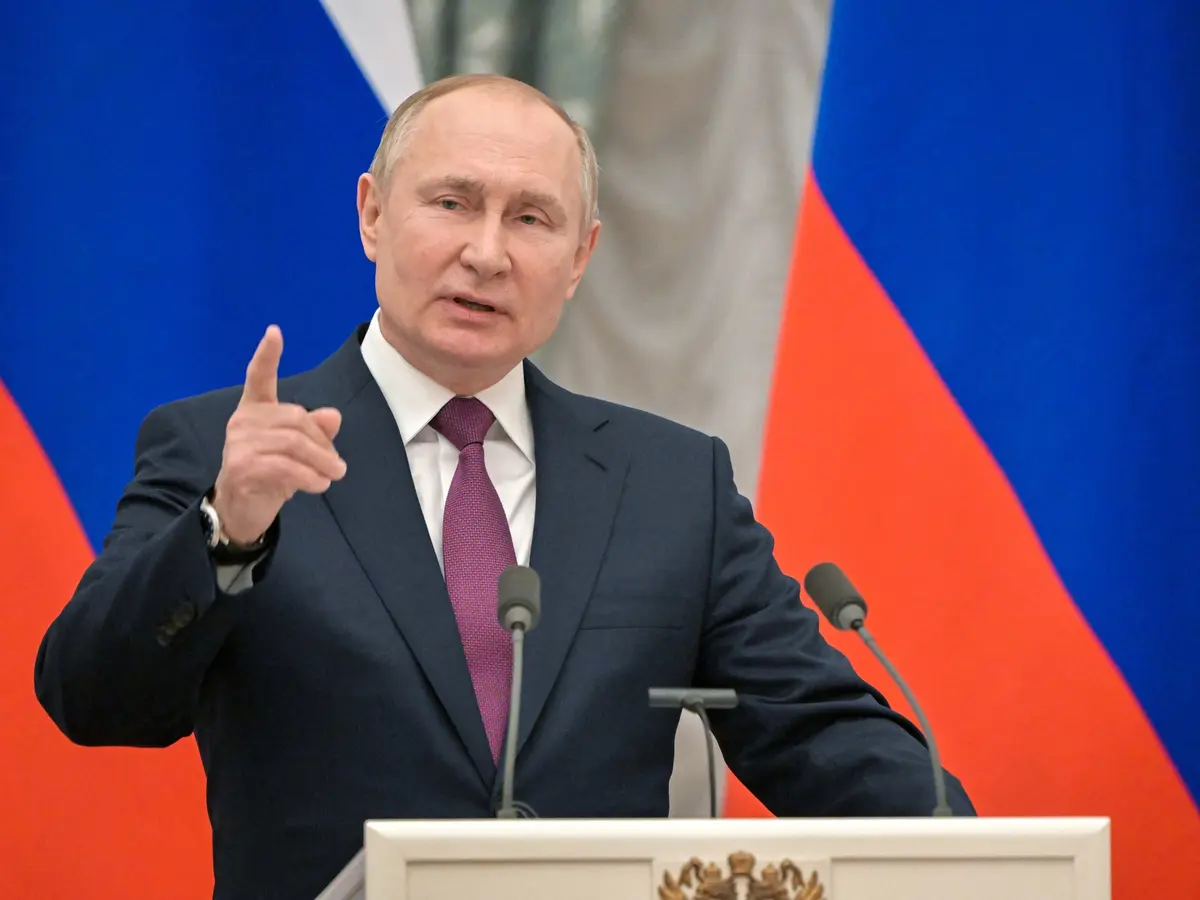In a move aimed at consolidating control and loyalty within the ranks of Russian private military contractors, President Vladimir Putin has issued a decree mandating that all employees of Wagner and other similar entities pledge their allegiance to the Russian state. The scope of this directive encompasses individuals actively engaged in military operations in Ukraine, including those providing assistance to the army and serving in territorial defense units. This significant development comes on the heels of an aviation accident that presumably claimed the lives of Wagner leaders just two days prior.
The decree, signed by Putin on a Friday and enacted immediately, serves as a response to recent events that have unsettled the status quo within the realm of Russian private military contractors. In a parallel development, a faction within Wagner known as Rusich, often associated with far-right ideologies, declared a cessation of military operations in Ukraine. Rusich issued this announcement via a Telegram post, where they criticized Russia’s foreign ministry for its perceived failure to protect one of their founding members, Yan Petrovsky. Petrovsky was apprehended in Finland due to visa violations and now faces extradition to Ukraine.
Analysts are interpreting Putin’s decree as a strategic maneuver to reassert his authority, particularly in the aftermath of Wagner’s mutiny in June. Natia Seskuria, an expert from the Royal United Services Institute, posits that Putin aims to exert greater control over Wagner, thereby mitigating the risk of future insurrections.
Central to the decree is the intent to establish a strong ethical and moral foundation for Russia’s defense apparatus. This involves requiring all members to take an oath, committing them to unwaveringly follow the directives of their commanders. This facet of the decree is seen as a covert message to military intelligence, urging them to identify and prosecute any Wagner fighters who may resist this new allegiance requirement. Petro Burkovskyi, who leads the Democratic Initiatives Foundation in Ukraine, suggests that it also serves as a clear ultimatum to the fighters themselves: either pledge allegiance and maintain their arms or disarm and comply, facing potential incarceration if they refuse.
The lead-up to this decree was marked by the failed rebellion led by Yevgeny Prigozhin in June. Prior to the uprising, the Russian defense ministry had mandated that mercenary groups, including Wagner, sign army contracts by the beginning of July. Prigozhin staunchly rejected this directive, as he opposed Wagner’s subjugation to the ministry. Putin’s alignment with the ministry’s contract proposal was a significant departure from his long-standing support of Prigozhin, culminating in the latter’s mutiny.
However, the aftermath of a plane crash presumed to have claimed the lives of Wagner leaders raises questions about the efficacy of the decree. With no obvious leadership figure remaining, the impact of Putin’s directive on Wagner’s rank-and-file remains uncertain. Burkovskyi believes that due to their extensive experience, these mercenaries could be valuable assets for the Russian army. Their initial attraction to Wagner stemmed from the group’s streamlined approach, in contrast to the bureaucratic complexities of the larger Russian military. Seskuria, on the other hand, anticipates potential resistance from loyal Prigozhin supporters who might reject the allegiance oath, potentially posing long-term challenges to Putin’s consolidation efforts.
In a parallel development, Russian air defenses successfully thwarted drone attacks on Moscow and the Belgorod regions. In the Belgorod region, which shares a border with Ukraine, shelling led to the injury of four individuals, as reported by the local governor. Although the Ukrainian government seldom acknowledges such actions, reports indicate that Russia’s shelling of a village near the northeastern town of Kupiansk resulted in two deaths and one injury, according to the regional governor of Kharkiv.
As the decree takes effect and its repercussions unfold, the future trajectory of Wagner, the dynamics of Russian private military contractors, and Putin’s bid for control in the aftermath of leadership upheaval will undoubtedly be subjects of keen interest and scrutiny.




